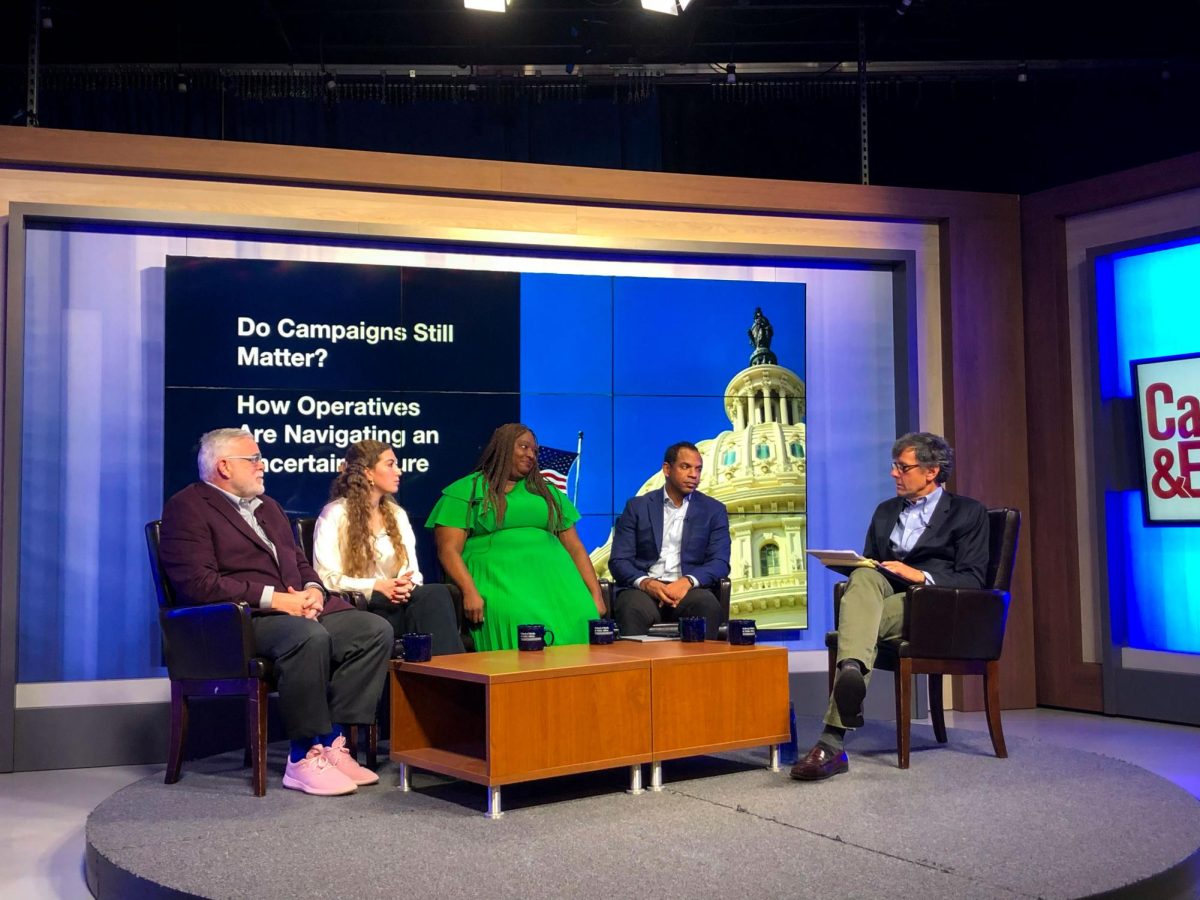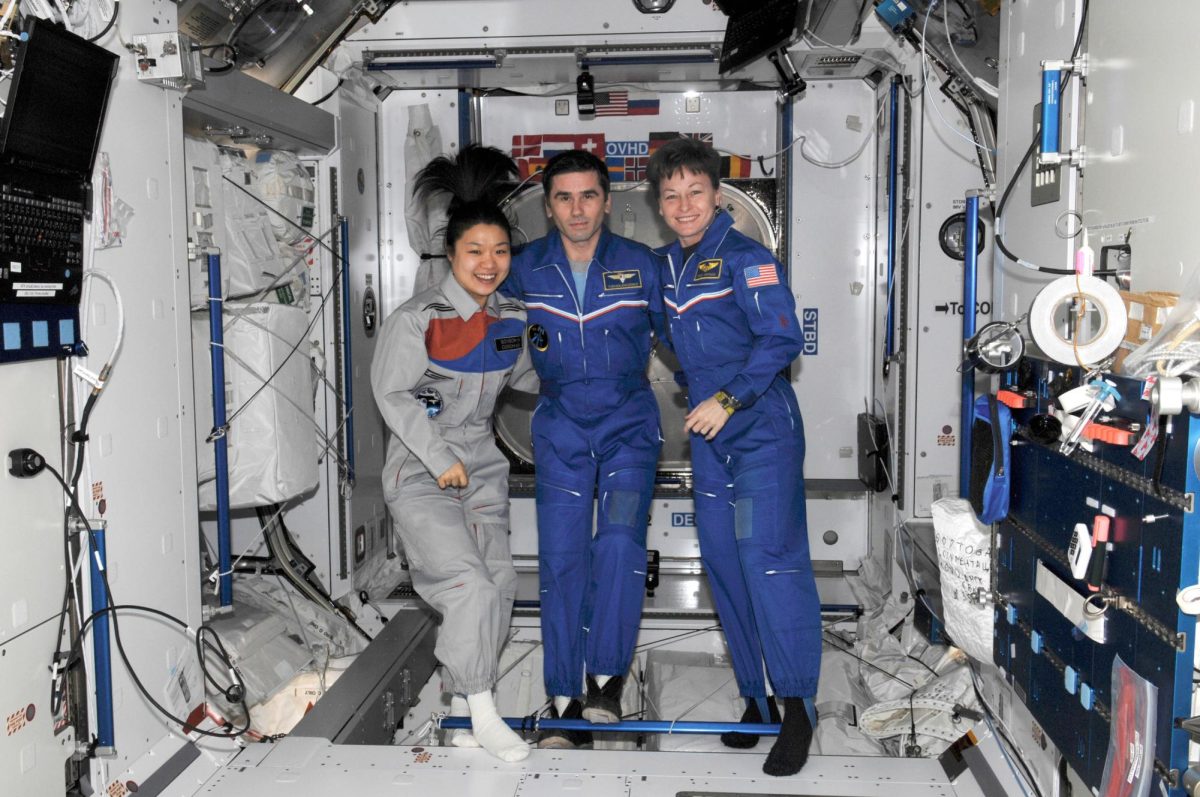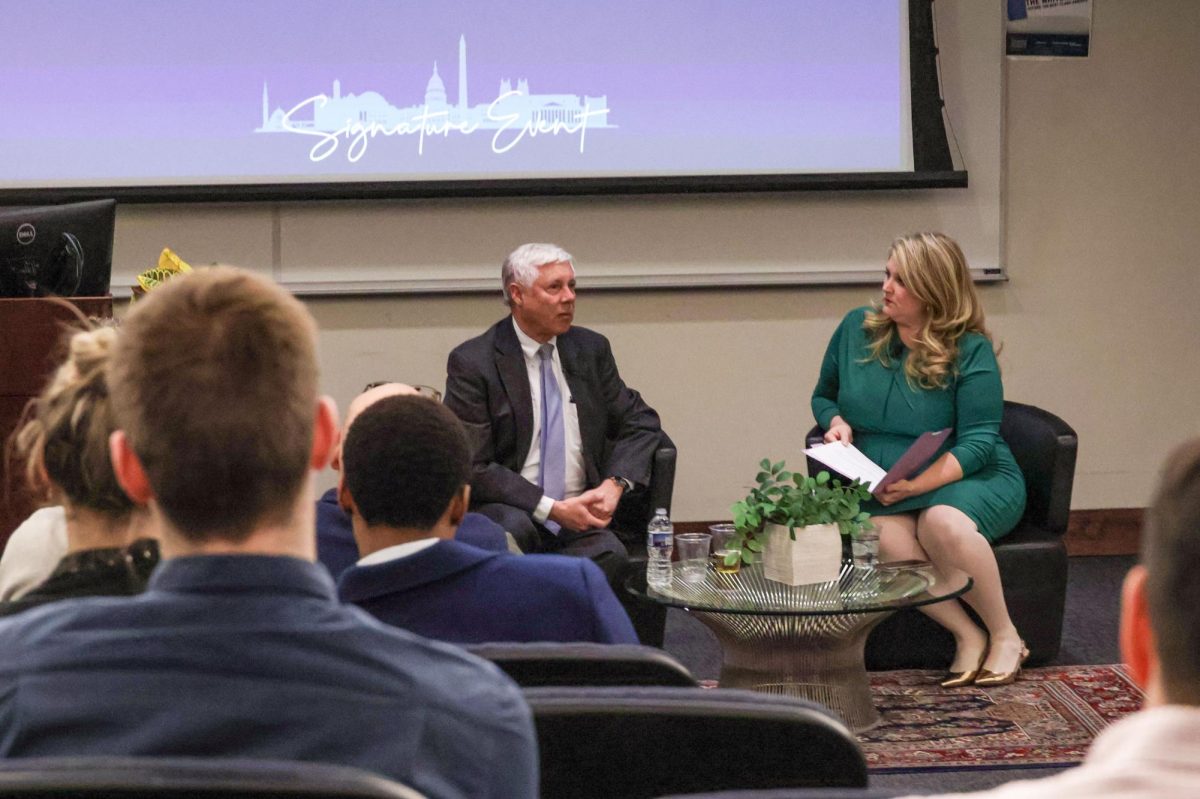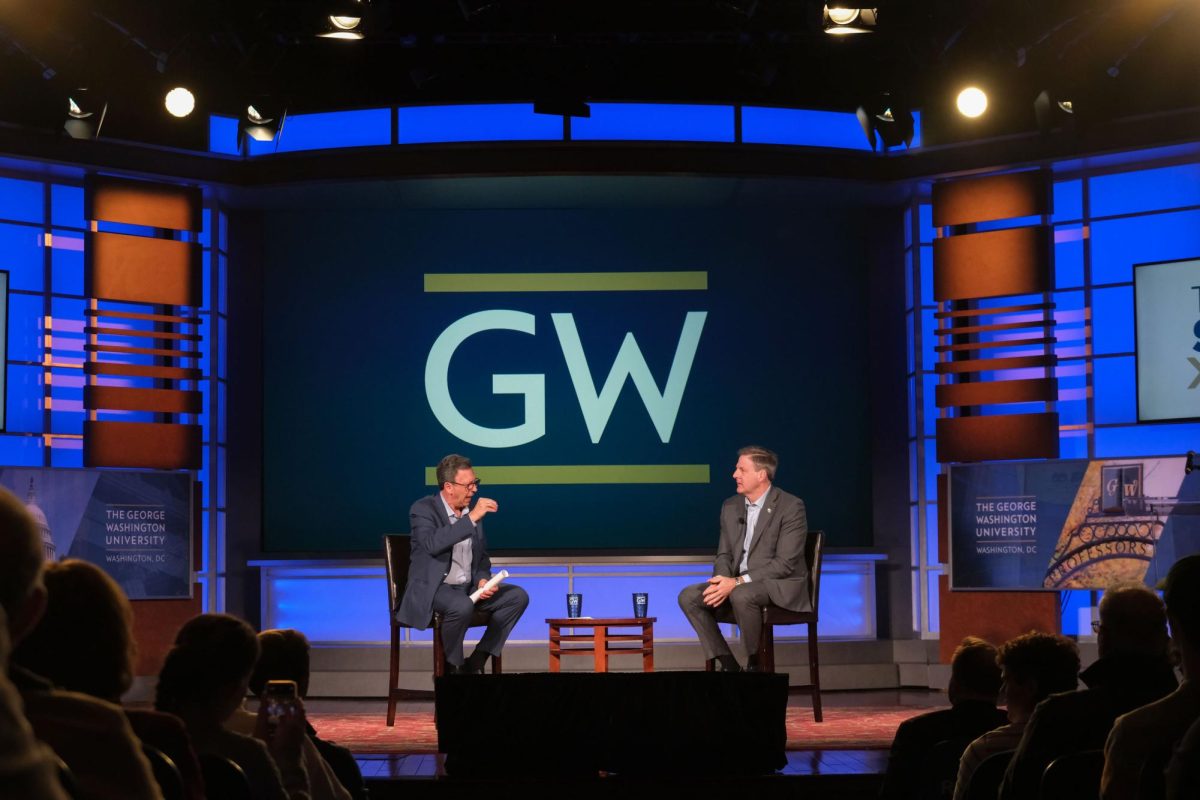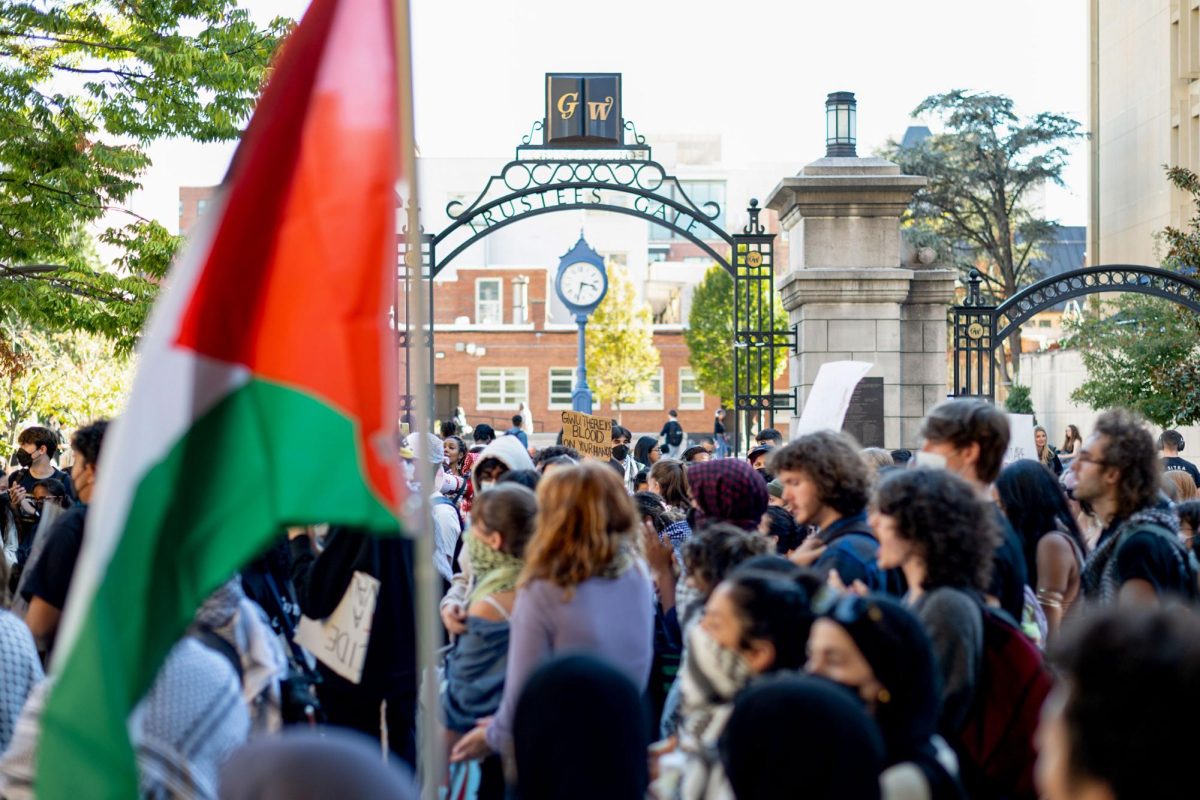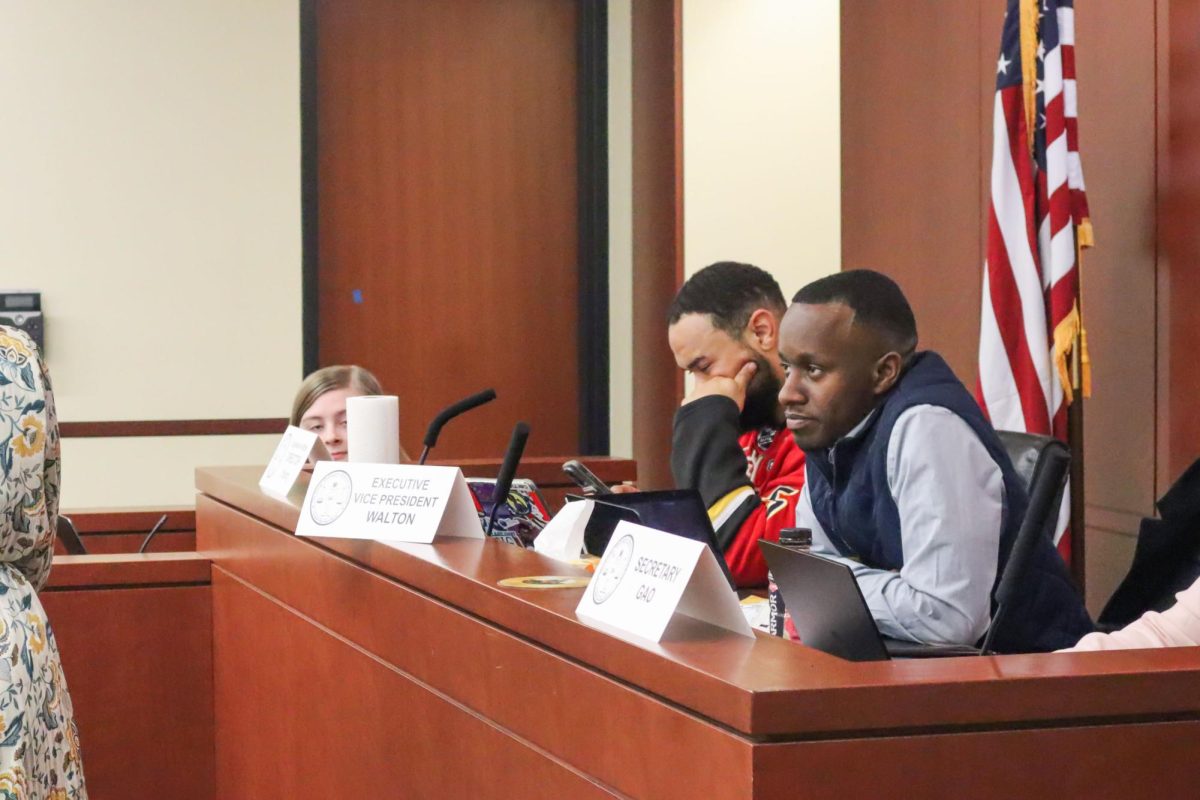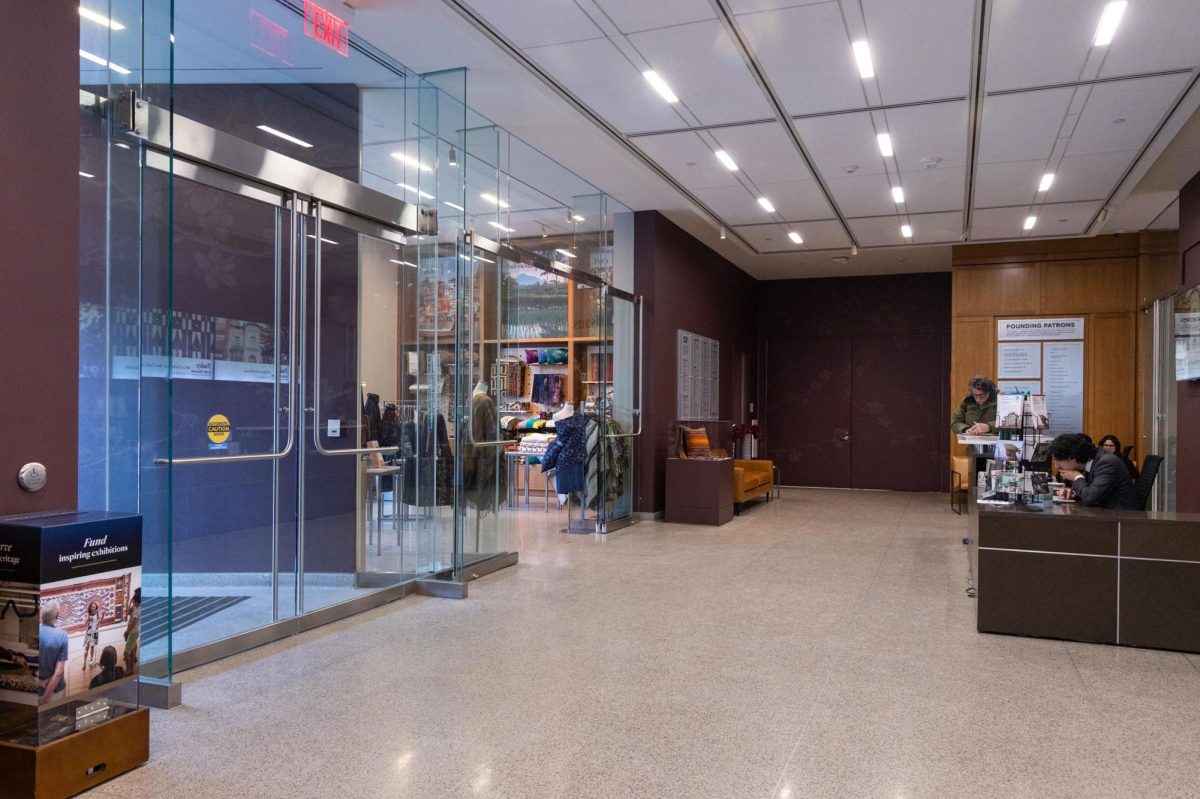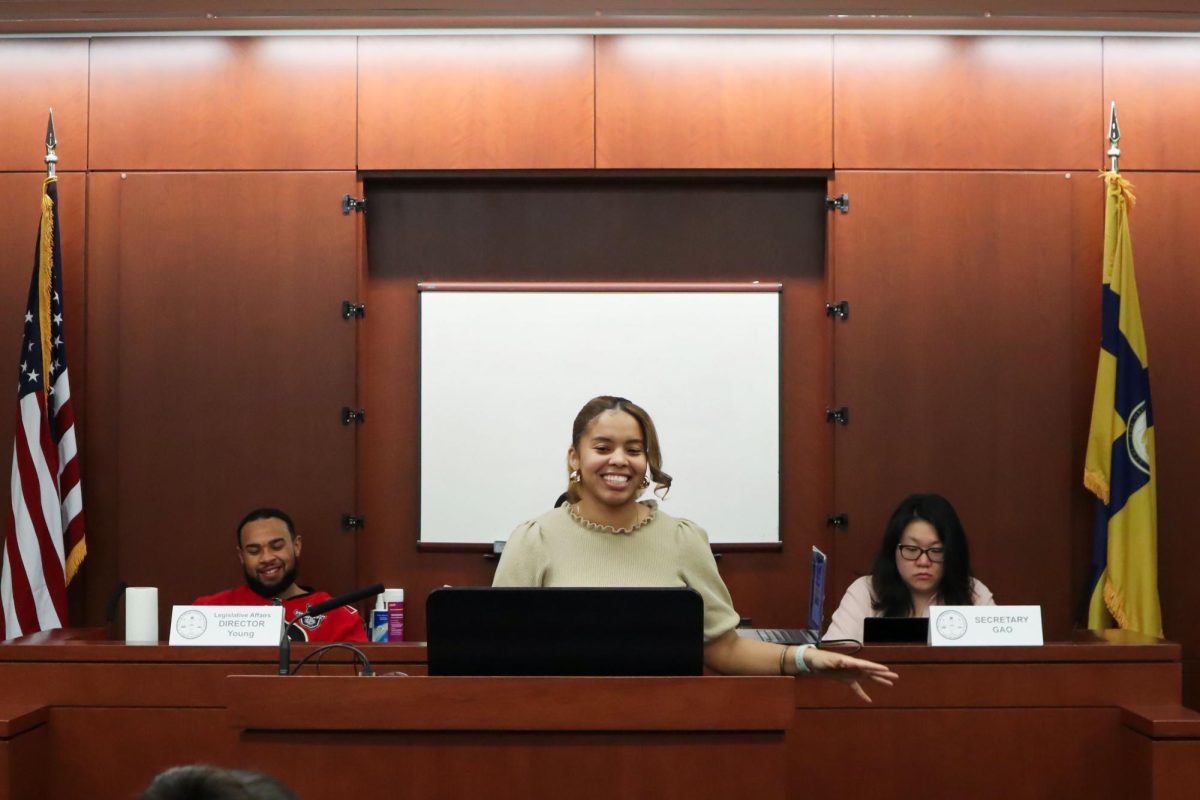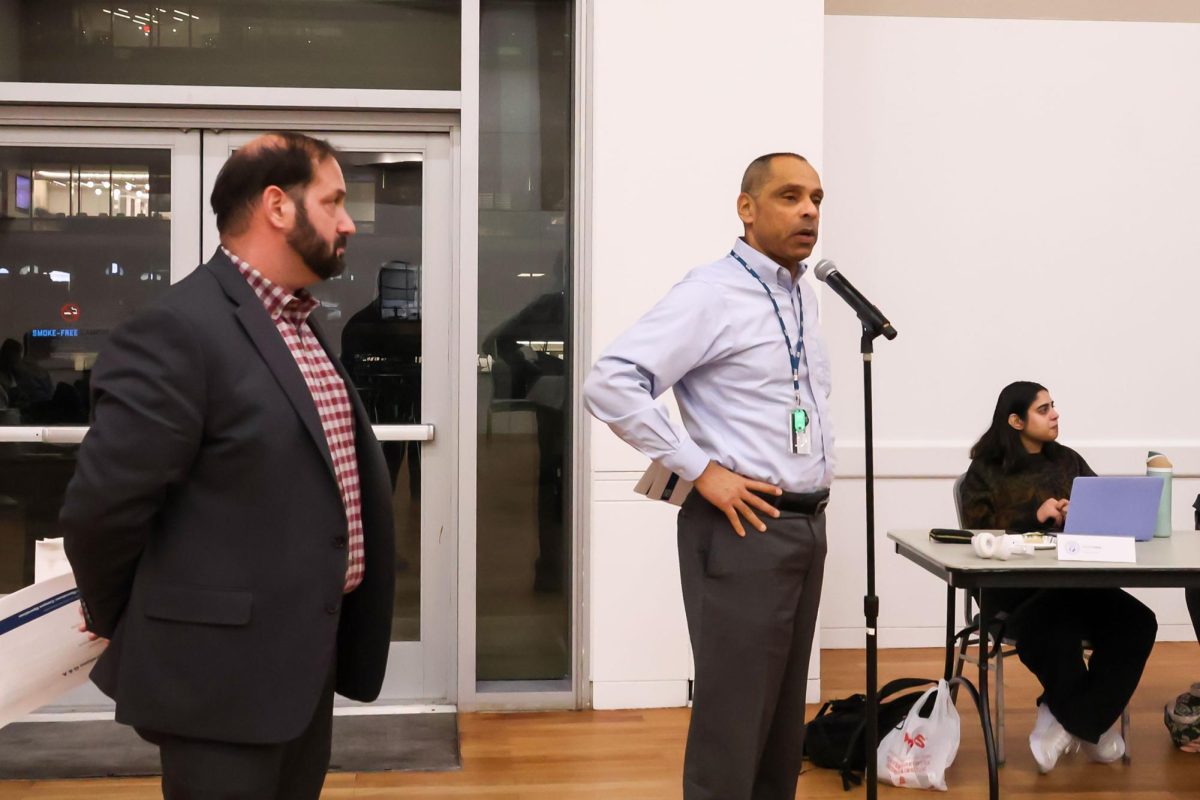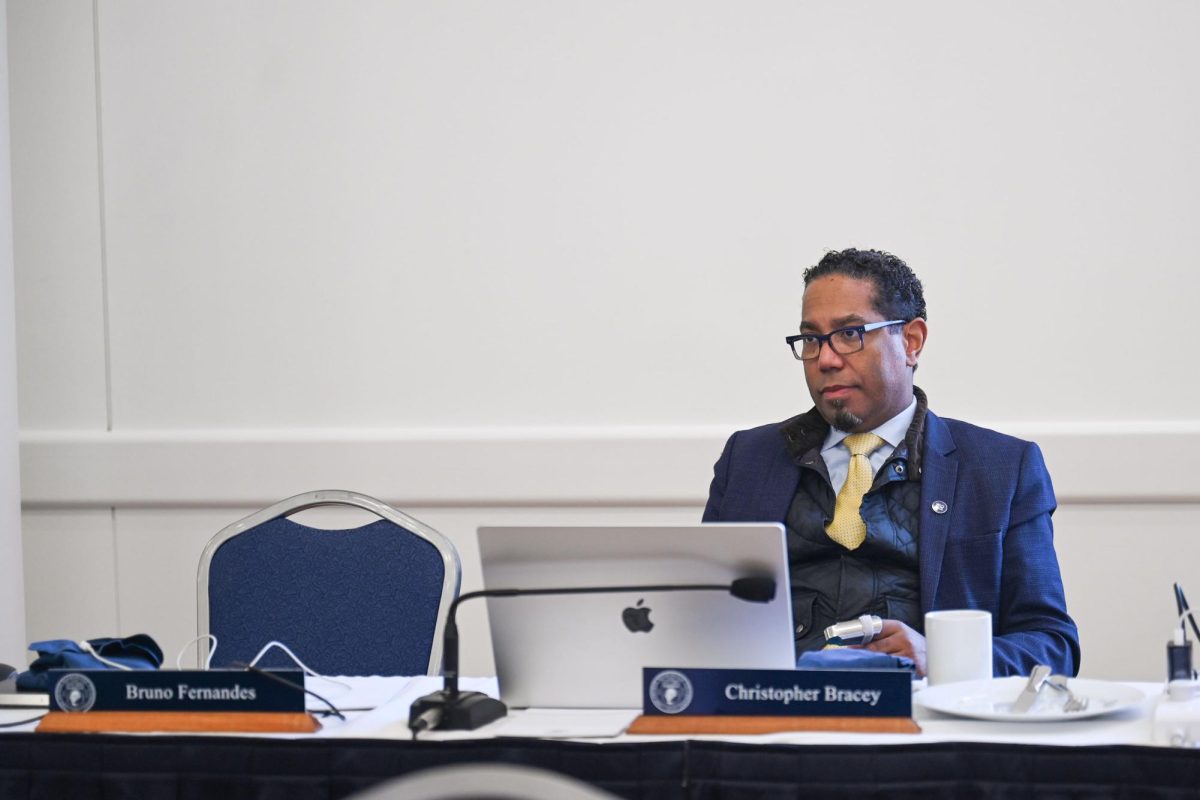Political strategists and a GW student discussed political campaigns’ state level reach of young voters ahead of the 2024 presidential election at the School of Media and Public Affairs on Tuesday.
The CEO of Democratic political consulting firm SKDK Doug Thornell, political strategists Maya Rupert and Mark Campbell, and Lilly Roberson, a junior studying political communication at SMPA, discussed the use of online platforms to boost election turnout. SMPA Director Peter Loge moderated the panel, the latest in a fall 2023 discussion series by the school and the magazine Campaigns & Elections.
Thornell said Republicans and Democrats need to identify and persuade voters who don’t like President Joe Biden or former President Donald Trump if they want to win the election. He said Democrats must engage with young, Black and Latino voters by catering specific campaign content to them and cannot take them for granted.
“They have to treat those voters like they would treat suburban voters as what you would consider a persuasion voter where you deliver content advertising to them very early on,” Thornell said.
Thornell said candidates will spend more on their campaigns for the 2024 presidential election than ever before because in-person campaigning has returned following COVID-19 lockdowns during the 2020 presidential election. He said Democrats will make an “intense” effort to contact voters early — which he said Biden has already started — because the party largely campaigned virtually in 2020 election, while Republicans did more in-person and phone contact.
Rupert, the former campaign manager for former Housing and Urban Development Secretary Julián Castro’s presidential campaign, said the young, politically engaged electorate gives campaigns an opportunity to build up the urgency of issues pertaining to their communities. She said campaigns must explain the significance of complicated legislation to foster a more informed electorate.
“It’s so easy to gloss over the details, there are details that matter immensely for people who are gonna need to turn out and vote,” Rupert said. “We need to make them not so super high-level policy.”
Rupert said it’s hard to reach voters when they don’t feel connected to a candidate’s message. She said campaigns need to “loosen the reins” and let local organizers build meaningful, in-person connections with voters as campaigns continue to use fewer personal online platforms and advertising to communicate.
“People in communities want to hear from the people in their communities,” Rupert said.
Campbell, the former campaign manager for Virginia Gov. Glenn Youngkin (R), said shared values between electors and candidates will define who the next president is. He said the “soft touch” of personal anecdotes from campaign staff via phone will create the “opposite” effect of presidential debates filled with angry emotions.
“Older voters vote based on their fears — losing their health, losing their home, not being able to find a job — and in the same, younger voters vote based on their hopes because they’re young and hopeful,” Campbell said. “So one of the political parties is going to have to offer hope and optimism.”
Campbell said undecided voters could get fed up with the “blood in the water” of fighting between Democrats and Republicans. He said there’s a consensus among voters to shift politicians’ focus to address the party’s future instead of engaging in partisan hostility.
“If ever there was a moment in U.S. history for a third party to run right up the middle, this is it,” Campbell said.
Roberson said she secured her campaign finance research internship from the people she met through Oklahoma politics, who she now considers her friends. She said her campaign work focuses on integrating young people into communities of political organizers, like the one she joined through mentors who served on former campaigns with her.
“Young people need to vote if we want to help make any change or build up party infrastructure or do whatever we need to do to solidify our futures a little more in politics,” Roberson said.
She said Generation Z has become desensitized to politics from being born after 9/11, growing up in a recession, women around the country losing access to abortions and separating from family members over political differences. She said students will have to create a political movement by canvassing to their peers, which supplies people with an initial engagement into politics.
“With maybe college campuses that aren’t quite as politically active as GW, I think it’s going to depend on college students specifically to kind of mobilize themselves,” Roberson said.


